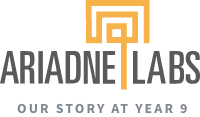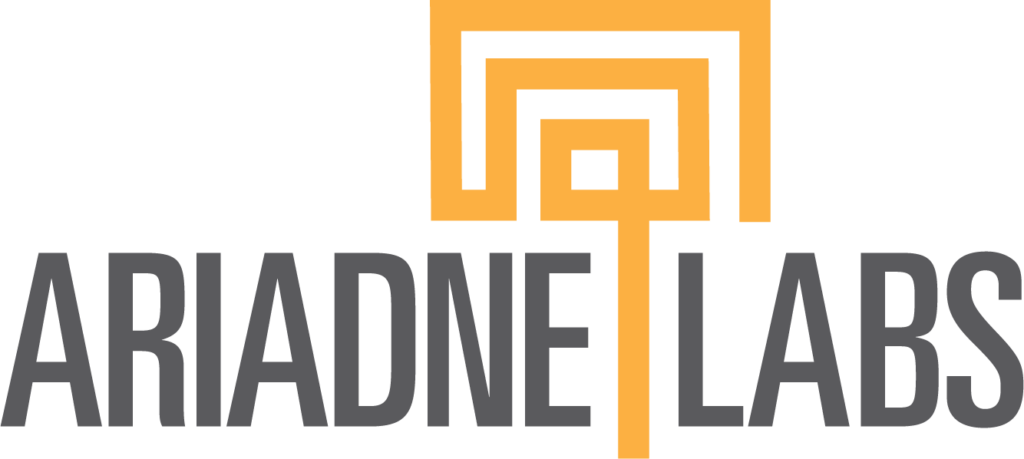Even the best systems must be prepared to respond to new or unexpected challenges. Whether that means being ready for a pandemic, implementing a new process to improve quality of care, or responding to medical harm events, follow-through innovations in this space prepare systems to contend with challenges.
USING CONTEXT TO GUIDE IMPLEMENTATION
ATLAS INITIATIVE
The Atlas Initiative helps health care systems assess their individual context to decide whether a particular quality improvement project is the right fit. By better understanding their specific context before and during a project, health systems can be more effective and efficient in their implementation efforts.
In 2021, the Atlas Initiative continued to expand its reach. The team started or continued work with 12 systems in four countries. The surveys have been completed over 740 times to help guide implementations.
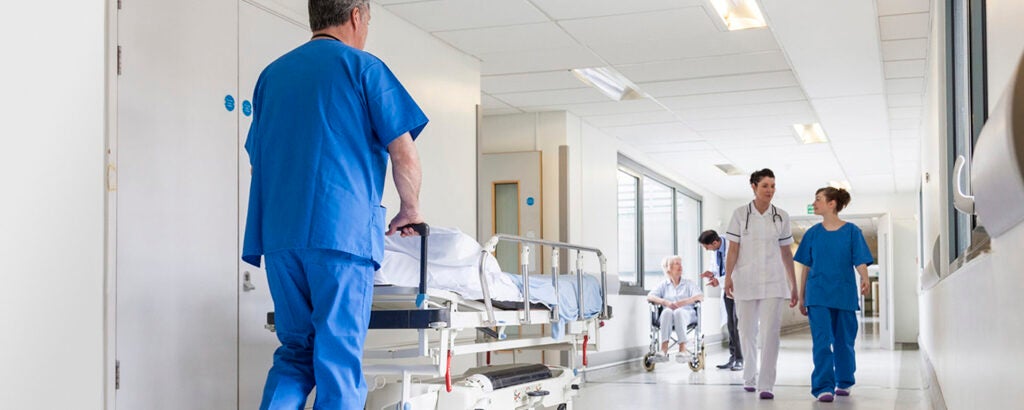
BUILDING A FRAMEWORK FOR PATIENT SAFETY
Even when patient safety initiatives are proven to work, gaps in how they are adopted can make them difficult to implement.
In 2021, Ariadne Labs and CRICO collaborated to develop the Patient Safety Adoption Framework, which outlines key domains critical to successful adoption of new patient safety initiatives. The framework was detailed in a featured abstract in BMJ Quality and was presented at the IHI Scientific Symposium and served as the basis for future work developing ambulatory safety net programs for colorectal cancer screenings.
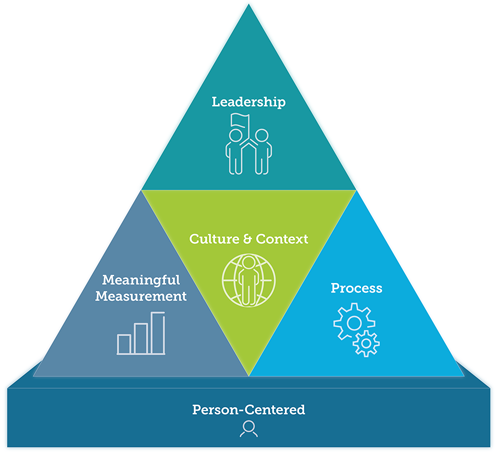
CONVENING A NATIONAL COLLABORATIVE FOR PATIENT SAFETY
The Pathway to Accountability, Compassion, and Transparency (PACT) Collaborative was established by Ariadne Labs, the Collaborative for Accountability and Improvement, and the Institute for Healthcare Improvement to promote development of comprehensive, highly reliable Communication and Resolution Programs (CRP). A CRP is a systematic approach to preventing and responding to harm while meeting the needs of patients, providers, and health care organizations.
In 2021, PACT successfully recruited 20 health systems, developed new and innovative tools, and planned a robust, comprehensive curriculum for upcoming learning sessions. Collaborative participants will attend five learning sessions focused on best practices for responding to medical harm events, and then work to implement changes within their systems with the support of their peers and Collaborative faculty. The PACT Collaborative officially launched in early 2022.
“The health systems in our PACT Collaborative have committed to closing gaps in safety and communication by introducing a structured process to respond compassionately when patient harm occurs. Through our learning sessions, we aim to further support them in ensuring the best possible care for every patient, every time.“
– Evan Benjamin, MD, Director of Community Innovation
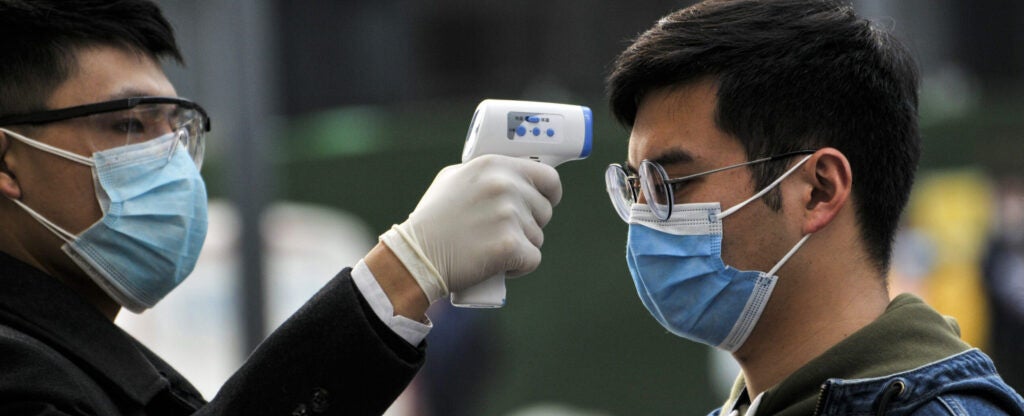
COVID-19
For two years, COVID-19 has challenged health systems around the world in unprecedented ways. At Ariadne Labs, we have continued our work in follow-through innovation to help systems around the world prepare to respond.
COVID-19 created a sense of urgency that has forced the health care and public health sectors to innovate like never before. Now it’s on us to move it forward, strengthen our public health systems, and continue to evolve.
– Eric Goralnick, MD, MS, Principal Investigator for the Global Mass Vaccination Site Collaborative
COVID-19
VACCINE DELIVERY
In December 2020, news of COVID-19 vaccines raised hopes around the world. But even before the rollout of the vaccines began, it was clear that the breakthrough alone was not enough. Follow-through innovation was needed to get shots into arms in an equitable, efficient way. How would health leaders manage overwhelming demand and limited supply? Where could mass quantities of people be vaccinated? How would providers have conversations with patients hesitant to get vaccinated?
Ariadne Labs quickly began work to design, test, and spread follow-through innovations through three key avenues. The Vaccine Equity Planner, developed in partnership with Boston Children’s Hospital and Google, sought to address integration gaps by identifying vaccine deserts and helping states plan for equitable distribution. The Vaccine Confidence Toolkit aimed to close communication gaps, and the Global Mass Vaccination Site Collaborative enhanced knowledge-sharing.
Collectively, Ariadne Labs’ Vaccine Delivery work has contributed significantly to the dialogue around vaccine equity and distribution at the national and local levels, with Ariadne experts appearing regularly in the media to discuss gaps in access and potential solutions.
“We know that inequities exist in our health care infrastructure, and the COVID-19 pandemic has cast a brighter light on those inequities. We build tools to help decision makers see the problems and find solutions. ”
Rebecca Weintraub, MD, Director, Better Evidence, Director of Vaccine Delivery at Ariadne Labs
COVID-19
USING DATA TO IDENTIFY VACCINE DESERTS
From the beginning of the vaccine rollout, existing integration gaps in health care meant that some communities lacked access to vaccinations. Ariadne Labs’ Vaccine Delivery team built the Vaccine Equity Planner, in partnership with Boston Children’s Hospital and Google, to help public health officials, providers, employers, researchers, and others assess scenarios to support equitable geographic access to COVID-19 vaccines. To inform decision-making around vaccine distribution, the tool identifies “vaccine deserts,” where people lack convenient access to vaccination, and suggests potential new vaccination sites in order to address the gaps. The tool has helped shape the dialogue around geographic access to vaccination and has created opportunities for Ariadne researchers to share their expertise with the media and at meetings with key stakeholders, including the Aspen Harvard Vaccine Equity Forum. The planner is updated weekly with new data.
“Across the nation, there are too many people for whom vaccines still remain out of reach. To support providers and public health officials, we built the Vaccine Equity Planner to identify existing vaccine deserts and detect promising sites to open within those deserts. Providers and public health leaders can advance their outreach and delivery strategies to reach all communities.”
Rebecca Weintraub, MD, Director, Better Evidence, Director of Vaccine Delivery at Ariadne Labs
COVID-19
CONVENING EXPERTS TO SUPPORT MASS VACCINATION SITES
When COVID-19 vaccines became available, the U.S. and other countries turned to mass vaccination sites to efficiently reach millions of people with limited vaccine supplies. Ariadne Labs and partners created the Global Mass Vaccination Site Collaborative in April 2021 to create a space for those on the frontlines of vaccine distribution to exchange information, techniques, and insights on safe, equitable vaccine delivery. The Collaborative includes representatives from hospitals, public health departments, nongovernmental organizations, government agencies, and more.
As vaccination efforts evolved into more locally based rollouts, the Collaborative adapted to tackle the new challenges. Meeting weekly, members have discussed topics such as logistics of setting up vaccination sites at racetracks and football stadiums, rollout efforts in countries ranging from Haiti to Brazil to India, and how to manage pediatric vaccine rollouts and booster shots. In partnership with the Sabin Vaccine Institute, a new phase of the Collaborative will focus on efforts to establish mass vaccination sites in low- and middle-income countries, where rates of vaccination have lagged.
COVID-19
BUILDING PUBLIC CONFIDENCE IN VACCINES
As vaccine rollout progressed, many Americans had lingering questions or concerns about getting the vaccine. Using expertise in designing conversation guides for providers, an Ariadne Labs team developed the Vaccine Confidence Toolkit to support providers in discussing vaccination with their patients. The toolkit also includes a patient handout with evidence-based information about the vaccines.
“The purpose of creating the toolkit was to make sure that actual conversations [were] based on facts, based on listening to concerns, answering with accurate information … rather than people making decisions based on anecdotes.”
– Evan Benjamin, MD, Director of Community Innovation
COVID-19
SUPPORTING HEALTH CARE WORKERS’ MENTAL HEALTH
Recurrent waves of COVID-19 have challenged health care workers’ resilience, with rates of depression and anxiety rising dramatically among health professionals. In places with limited mental health infrastructure, such as Mumbai, India, the strain on health care workers has been particularly pronounced.
As India faced a devastating surge of COVID-19 in spring of 2021, clinicians at BYL Nair Hospital in Mumbai reached out to Ariadne Labs in search of tools to help health workers cope with stress, trauma, and burnout. With seed funding from Stavros Niarchos Foundation, Ariadne teamed up with mental health workers in Mumbai to create the Strength in Crisis Collaboration and launched a series of workshops to prepare mental health professionals to support colleagues dealing with excessive strain. To date, this work has reached over 1,000 health professionals and students and continues to spread.
COVID-19
ADAPTING THE WHO SURGICAL SAFETY CHECKLIST FOR COVID-19
As surgical systems around the world adapted to the challenges of COVID-19, Ariadne Labs and Lifebox virtually convened 18 panelists from five continents and multiple clinical specialties to identify modifications to the WHO Surgical Safety Checklist to improve its utility in these adapted settings. The panel made 16 recommendations and demonstrated how the checklist can be adapted to meet emerging needs of surgical systems. Findings were published in the World Journal of Surgery.
The team also published Redeployment of Health Care Workers in the COVID-19 Pandemic: A Qualitative Study of Health System Leaders’ Strategies.
